The Writing Life of: David Jarvis
David Jarvis
This week I am thrilled to be interviewing author David Jarvis. David will be sharing with us details of his writing life, telling us all about his new book ‘The Collation Unit‘, which was released on 16th March 2021, and answering a few fun questions. This post contains affiliate links.
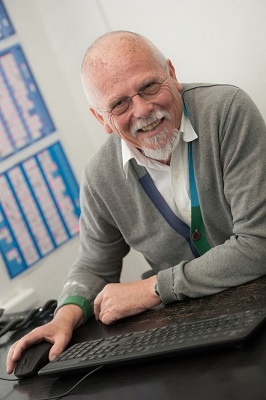
David Jarvis went to Art College for four years before setting up a landscape architectural and planning practice in 1982 working primarily on large scale projects; these were all over the world from Saudi Arabia to Croatia, from France to Trinidad. His last project, after almost 40 years, was assembling and directing the team whose task it was to plan Jamaica for 25 years in a climate-resilient way.
He was President of the Landscape Institute, the UK government chartered body for 5000 landscape architects and planners, as well playing the same role in an international organization representing 25,000 professionals worldwide.
He has coordinated 24 pieces of UK government research 2004-2017 as well as chairing or contributing to conferences in Australia, Canada, Costa Rica, Denmark, France, Japan, Mexico,
Singapore, UK and the USA.
He is now retired in Wiltshire.
1) Did you enjoy writing when you were a child?
Yes, from the age of about 6. I even remember my first attempt at a novella aged 14 called ‘Why the carpet sneezed’. Well, it was 1968.
2) Which author shaped your childhood?
Arthur Ransome and the 12 books in his Swallows and Amazons series. These were the first books that I took out of the library of my own free will. At home we had dictionaries and encyclopaedias but no fiction. Also I would say Henry Williamson and Dandelion Days which I did at O Level and read many of his books.
3) What motivated you to begin your first novel?
I wrote two novels and I thought that they were very clever. They were … but too clever and too contrived. These helped me to hone the craft a little and get in a position to write The Collation Unit which I began in the early Nineties.
I was in Saudi Arabia during the Falklands War and it gave me a whole bunch of ideas for a spy novel. It took me several years to write it while running my practice and working all over the world. The big problem was finding an agent but a friend introduced me to Gerald Pollinger who unbelievably took me on (He and his father were Graham Greene’s agent among many other excellent authors).
4) Do you plot your book, or are you a pantser?
My books are plotted quite thoroughly. They need to be because they normally take place in different places over a tight timescale. However, I always find that there is a moment after not many chapters where a character suddenly does something of their own volition and the plot structure evolves towards the ending; I love it when a character suddenly decides to go to the dentist, say, when this was never a conscious thought by me. I normally don’t change the original idea for the denouement. In The Collation Unit I am particularly proud of the ending; none of the 40 reviewers so far have guessed the ending but none felt cheated or misled.
5) What is your average writing day?
Before I retired, it would have been a couple of hours in the evening with a glass of wine or on a plane or in a hotel in Trinidad or Costa Rica or Turkey where I would be working for a couple of weeks or chairing a conference. Since retirement, I get up at 5.00 and write for a few hours. I spend a lot of time thinking so that I can be productive when I have a notepad or keyboard in front of me. I have just finished the next book which is ready for editing called The Tip of the Iceberg.
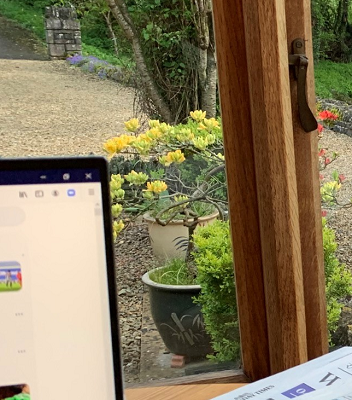
Where David Jarvis Writes
6) What is the best thing about being an author?
It is about being able to use your imagination. That word ‘imagination’ has pervaded my life from Art College to planning countries to writing novels. I am also obsessed with words and have been a Times cryptic crossword fan for 40+ years. Novels allow me to have fun with language. The best thing is seeing the face of someone who has read your book and enjoyed it; this is worth a million pounds.
Publisher – Matador
Pages – 336
Release Date – 16th March 2021
ISBN 13 – 978-1800462083
Format – ebook, paperback
Synopsis
In the 1970s computers were beginning to overwhelm the Secret Services. Quickly, too much information was coming into GCHQ and things were being missed. The Collation Unit was set up underground in six floors beneath some old aircraft hangars at Mannington airfield just outside Cheltenham to make connections and prioritise everything.
In April/May 1982 they spotted some very strange things happening in Georgia and Saudi Arabia. Unfortunately, London decided to move the only satellite covering this area down to the South Atlantic where some Argentinians had begun to invade the Falklands. When tensions began to develop with London, Mannington had to resort to old-fashioned means of finding out what was going on in the Middle East. They found Mark Tanner, an irrigation engineer from High Wycombe, who was working on new Military Cities in Saudi Arabia. He was there to make enough money to pay off his mortgage after a small difficulty involving a fire. It is true to say that however technology moves on, it still all comes down to people on the ground …
A tense and exciting story with an unguessable ending, this is a must-read for spy thriller enthusiasts and anyone who has always wondered what goes on behind closed doors.
Purchase Online From:
7) How did you go about researching the content for your book?
I probably read thirty biographies and histories so that the detailed context is accurate (it is set broadly in April/May 1982 in half a dozen countries). It tries to highlight the incredible progress in computers and communications since this time. It was a critical moment for the Secret Services who went from not having enough information to having too much. There was no internet, no social media and no mobile phones.
Fortunately I had been to all of the countries used in the book except for the Falklands which only provides a loose backdrop.
8) How long did it take to go from the ideas stage to writing the last word?
I am going to say 4 years. I was running an international planning practice at the same time and playing a role in the profession worldwide.
9) What made you choose the genre you write in?
Firstly, I like spy books but I wanted it to be about people not guns and sex. Secondly, I wanted it to have light humour and wit. The book has been compared to Mick Herron’s excellent Slough House series even though it pre-dates these. Thirdly, I wanted it to be a thriller/do-they-get-away-with-it story. Fourthly, as I said above, I wanted it to deal with the problems and possibilities of communications and computers.
10) How did you come up with the name(s) for your lead character(s)?
The lead character is called Empty. He is an antihero. A book reviewer wrote yesterday that Empty was ‘ … an accidental hero worthy of Graham Greene’. Another book reviewer and editor called Empty ‘ … one of the most joyous anti-heroes ever consigned to the written word.’ I am blown away by these comments. The name Empty just seemed to sum up this unfortunate, rather too honest but resourceful individual. I could say more but it may spoil the book for anyone.
11) Can you give us an insight into your characters?
A recent review said, ‘I loved how each of the characters all played a fundamental role in the story … there was never a dull moment’. There are a lot of characters but they all have a backstory and all contribute. This was my intention. The main characters range from Saudi Sheikhs to British irrigation engineers, from GCHQ wives to the retired head of MI6. Some are funny intentionally, some without realising it. Empty represents the ‘ordinary bloke’ caught up in a difficult situation but useful because of where he ends up.
12) How did you feel when you had completed your book?
Wonderful. Proud. Then reality kicked in and I needed to find an agent who might appreciate promoting a light, humorous spy thriller. When I met Gerald, already an old man in his old-fashioned office and asked him if he liked the book. He said he hadn’t read it … just Chapter 3. He always just read Chapter 3 of a new author as this represented his/her true style. Chapter 2 of any book is probably the old Chapter 1 and is overwritten. Chapter 1 was probably written later and would be well-honed, he said. Instead, he had two of the well-known authors in his books read my novel and give him their thoughts. He was priceless.
Fun Questions

1) Do you have a favourite quote you live by?
I don’t really but I have always ‘enjoyed’ every day of my life. I am, and always have been, very calm and content.
2) Do you have any pets?
No, mostly because I have travelled all over the world for work and relaxation sometimes for 2 or 3 months at a time. I am, however, obsessed with all things natural and purposely living right next to a river. I have nature cameras around me and watch the otters almost every day just outside of my window. They are the nearest thing to pets … perhaps that goes back to Williamson’s Tarka the otter?

3) What’s on your current reading list?
Collapse by Vladislav M Zubok (about the collapse of the Soviet Union)
And re-reading The Mortdecai Trilogy by Kyril Bonfiglioli (now, there’s a real anti-hero)
4) Your book has been made into a feature film, you’ve been offered a cameo role, what would you be doing?
I would be queueing at Geneva airport while two of the protagonists pass by unbeknownst to each other.
5) If you could travel to the fictional world of any book for the day, which would you choose?
I would love to spend a day in West London as described by Robert Rankin in his East of Ealing, The Brentford Triangle etc. drinking in The Flying Swan especially when the Antipope arrives …
6) There’s a penguin sitting in your writing chair, what is the first thing he says to you?
“I hear that your recently finished novel is set against the backdrop of a review of the wonderful Antarctic Treaty of 1961? Can I help you with some of the context? And can you turn down the central heating.”
I would like to say a big thank you to David Jarvis for sharing with us details of his writing life and for a wonderful interview.


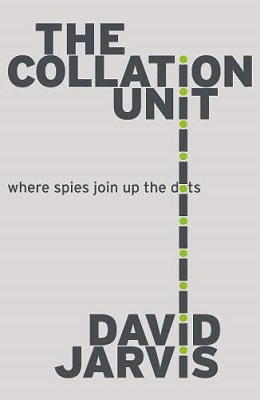


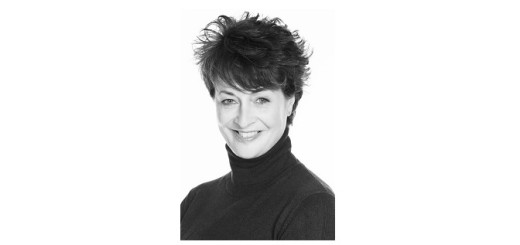
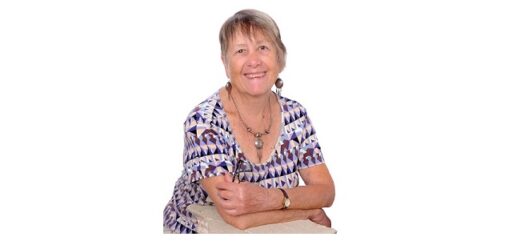
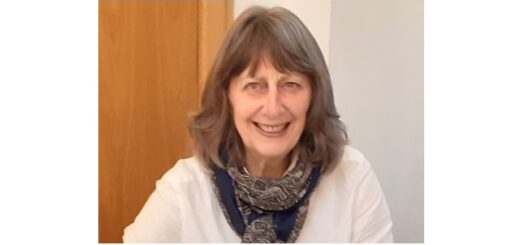

I love the part about Harold only reading Chapter 3 – what a guy!
definitely enjoyed this interview.. and David Jarvis sounds so very interesting.. will need to check out his book.. and that chapter 3 concept does sound smart…
Love this interview. Thanks for sharing.
Thank you DJ. I know, super Harold!!
Thank you Vidya, Glad you enjoyed our interview with David. I agree he sounds very interesting.
Thank you Nadene. Good to hear that you enjoyed our interview with David Jarvis.